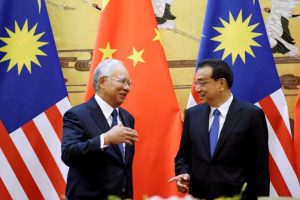Malaysian Chinese driving business growth

(CCTV) – The Malaysian city of Melaka is playing host to the 8th World Chinese Economic Summit this week. It aims to promote closer links between the global economic community and Chinese business people — both inside the country and around the world.
It seems fitting that the World Chinese Economic Summit should be taking place in Melaka where Chinese admiral Zheng He first estabilished strong trading ties six centuries ago.
This summit aims to strengthen business links between the Chinese diaspora and China through sharing ideas and building networks.
Ethnic Chinese make up about a quarter of Malaysia’s population, but own a large majority of the small and medium businesses and non-state owned corporations.
“Business people from Malaysia have been very pro-active in investing in China and they were there right from when China first began opening up. We had Robert Kuok starting his chain of Shangri La hotels in China way back in the 1970s. We’ve had many other Chinese Malaysian businessmen who have gone into property development in the early 1980s as well,” Michael Yeoh, co-founder of World Chinese Economic Summit, said.
The Chinese diaspora is estimated to account for 60 per cent of foreign direct investment into China and still today, Malaysian companies have invested far more in China than the other way round.
That’s changing though. Chinese Malaysian businesses have teamed up with companies from China to build industrial parks, upgrade and build ports, in manufacturing, property and infrastructure development.
“It’s immense, the opportunities. The advantages are definitely there being Chinese simply because of the communication, the language. And our roots are back there in China. My father came in the 1950s from Xiamen and so we still have our roots. And in fact I am doing some business with the people there right now. Then they will recommend us to other investors who are keen to come here and vice versa,” Li Sue Beng, managing director of Strait of Malacca Partners, said.
But it’s not just ethnic Chinese business people helping drive the rapid growth of China’s investment here.
Leading figures from the main ethnic-Chinese political party in Malaysia’s ruling coalition have also been key, with one appointed as the prime minister’s special envoy to China, and the transport minister helping seal several major rail and port deals tied to the Belt and Road initiative.

